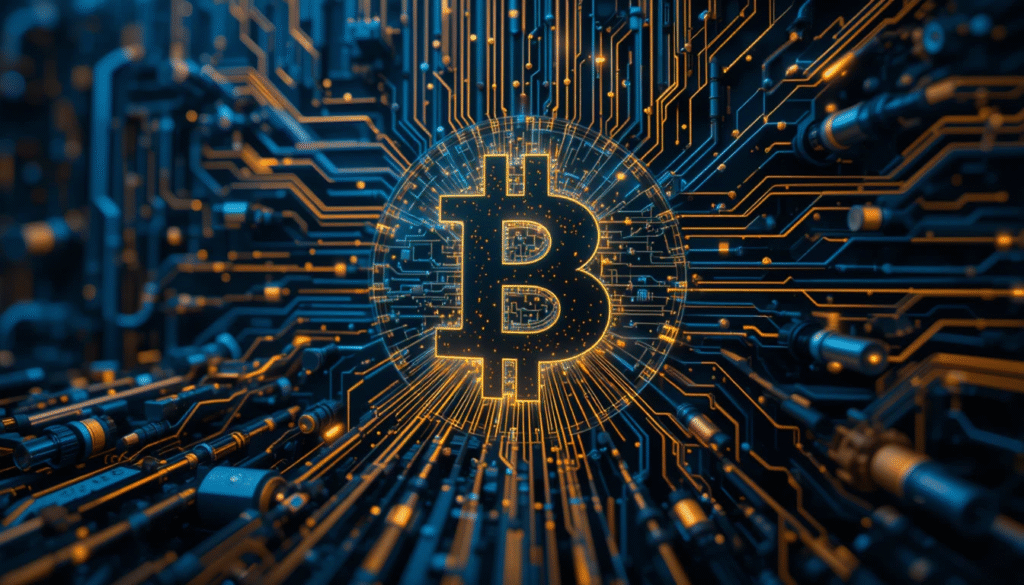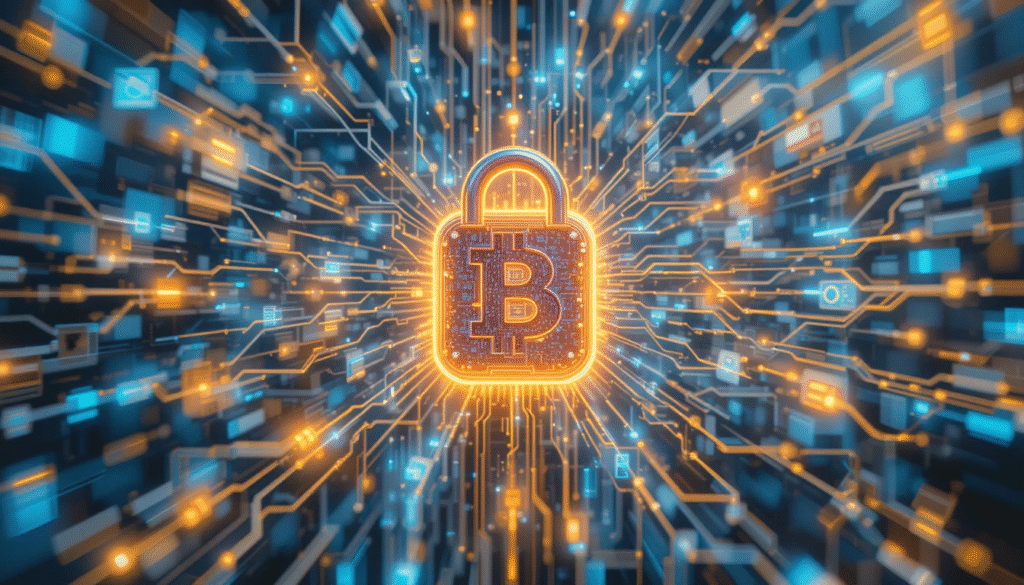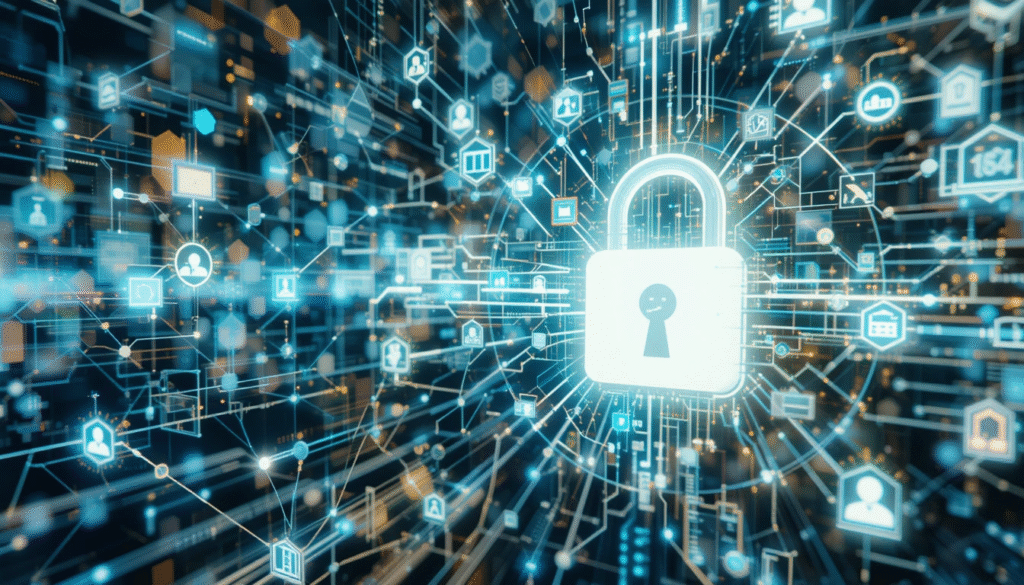One of the most innovative technologies of the digital age is blockchain software. Blockchain is fundamentally a decentralized digital ledger that safely logs transactions on many machines. It does not depend on a central authority to validate data, in contrast to traditional databases. Rather, consensus processes are used to validate transactions, making it almost hard to change them covertly. Blockchain software offers a solid basis for security, transparency and trust because of its architecture.
Blockchain technology has many applications in today’s digital economy, including voting systems, identity verification, financial services, healthcare, supply chain management, and cryptocurrency. Despite its strong security features, blockchain is not impervious to attacks. This is the point at which cybersecurity becomes crucial.

Knowledge of Cybersecurity
Cybersecurity is the process of defending digital assets, networks, and systems from illegal access, data breaches, and cyberattacks. As technology develops, cybercriminals have created increasingly complex tools and techniques to take advantage of weaknesses. Therefore, cybersecurity must be a top priority for both individuals and enterprises in order to protect national security, corporate transactions and personal data.
Multiple levels of protection, including intrusion detection, firewalls, authentication, encryption, and security procedures, are essential to cybersecurity. For cybersecurity professionals, the emergence of blockchain software has brought both new opportunities and difficulties.
The Relationship Between Cybersecurity and Blockchain Software
Blockchain main goal is to guarantee safe data storage and transactions, which makes it closely related to cybersecurity. Because attackers can target central servers, traditional systems are susceptible to hacking. But because blockchain is decentralized, it removes single points of failure, which lowers the possibility of data tampering.
Blockchain makes it impossible to alter data put into financial transactions, for instance, without the consent of the majority of network users. This immutability improves mutual trust, which is essential to cybersecurity.
However, blockchain still needs more cybersecurity safeguards in spite of its advantages. Instead of focusing on the blockchain itself, hackers frequently target apps, wallets, smart contracts and exchanges. This implies that businesses need to integrate cutting edge cybersecurity techniques with blockchain security capabilities.

Blockchain Software Principal Features for Cybersecurity
Decentralization
Since only one server houses data in traditional systems, hackers may easily attack it. Since blockchain disperses data among several nodes, it is very difficult for unauthorized parties to alter it. One of blockchain greatest cybersecurity benefits is decentralization.
Security of Cryptography
Blockchain protects data via cryptographic methods like digital signatures and hashing. Encrypting each transaction and connecting it to the one before it guarantees the chain security. It is almost hard to get unwanted access without the right cryptographic key.
Being open and unchangeable
A blockchain keeps a permanent record of every transaction. Because of its immutability, hackers are unable to change historical documents covertly. Transparency also makes it possible for users to confirm transactions, which increases system confidence.
Mechanisms of Consensus
Blockchain depends on consensus techniques like Delegated Proof of Stake (DPoS), Proof of Work (PoW), and Proof of Stake (PoS). These safeguards guard against fraud and double spending by ensuring that only legitimate transactions are appended to the blockchain.
Cybersecurity Issues with Blockchain Applications
Blockchain is extremely safe, but there are still concerns. The following are a few of the main cybersecurity issues:
Smart Contract Weaknesses
Blockchain-stored self-executing code is known as a smart contract. If they are not well designed, hackers may take advantage of them and cause damages.
Attacks 51%
Hackers can alter transactions if they take over more than 51% of the network’s processing capacity. In smaller blockchain networks, this assault poses a significant risk despite its rarity.
Phishing Attacks
Through phony websites or emails, cybercriminals deceive users into disclosing wallet information or private keys, which results in money being stolen.
Hacks for Cryptocurrency Exchanges
Although the blockchain ledger itself is safe, hackers frequently target cryptocurrency exchanges.
Privacy and Regulatory Issues
Although blockchain holds transparent data, it occasionally violates privacy regulations like the GDPR. Policies for cybersecurity must strike a balance between openness and individual privacy.
Blockchain advantages for cybersecurity
Defense Against Data Breach
Hackers can hardly steal sensitive data thanks to blockchain cryptography. Businesses may utilize blockchain for authentication and safe document storage.
Verification of Identity
Because blockchain does not require centralized authority, it offers strong identity management. Blockchain stored digital IDs lessen fraud and identity theft.
Safe Internet of Things Devices
Because linked devices have inadequate security, the Internet of Things (IoT) is vulnerable to hackers. By employing cryptographic security and decentralizing data, blockchain can safeguard the Internet of Things.
Fraud Detection and Prevention
To identify fraudulent transactions, financial institutions employ blockchain technology. The persistent recording of every transaction allows for the prompt identification of any anomalous activity.
Increased Transparency and Trust
Blockchain ensures transparent and unchangeable records, which boosts confidence in sectors like healthcare, supply chains, and finance.
Applications of Blockchain and Cybersecurity in the Real World
Finance and Banking
Blockchain guarantees transaction transparency, lowers fraud and safeguards digital payments. Multi factor authentication and encryption are two cybersecurity techniques that fortify these systems.
Healthcare Sector
Blockchain protects patient data and makes sure that only individuals with permission may access private information. This stops data manipulation and medical identity theft.
Management of Supply Chains
Businesses track products from manufacturing to delivery using blockchain technology. No unauthorized party may change supply chain records thanks to cybersecurity technologies.
Voting Procedures
Blockchain prevents election fraud by enabling transparent and safe voting. Cybersecurity protects voters from outside manipulation and guarantees their anonymity.
Defense and Government
Governments utilize blockchain to share data and communicate securely. By stopping cyberattacks and espionage, cybersecurity protects national security.
Blockchain and Cybersecurity Future
Blockchain technology and cybersecurity appear to have bright futures. Strong security solutions are more important than ever due to the growth of digital transactions, e-commerce, cloud computing, and the Internet of Things. It is anticipated that blockchain will combine with machine learning (ML) and artificial intelligence (AI) to significantly improve cybersecurity.
For instance, ML algorithms may anticipate possible dangers before they materialize, whereas AI can identify odd patterns in blockchain transactions. Furthermore, blockchain’s cryptography techniques will need to change as quantum computing develops in order to be safe.
Final Thoughts
Cybersecurity and blockchain technologies are revolutionizing the way digital systems function. While cybersecurity guarantees defense against ever changing cyberthreats, blockchain offers decentralization, transparency, and cryptographic security. When combined, they provide a strong barrier against identity theft, fraud and data breaches.
Blockchain has the ability to completely transform sectors, despite its hazards. Strong cybersecurity procedures combined with blockchain technology can help individuals, governments and companies build safer online spaces in the future.



